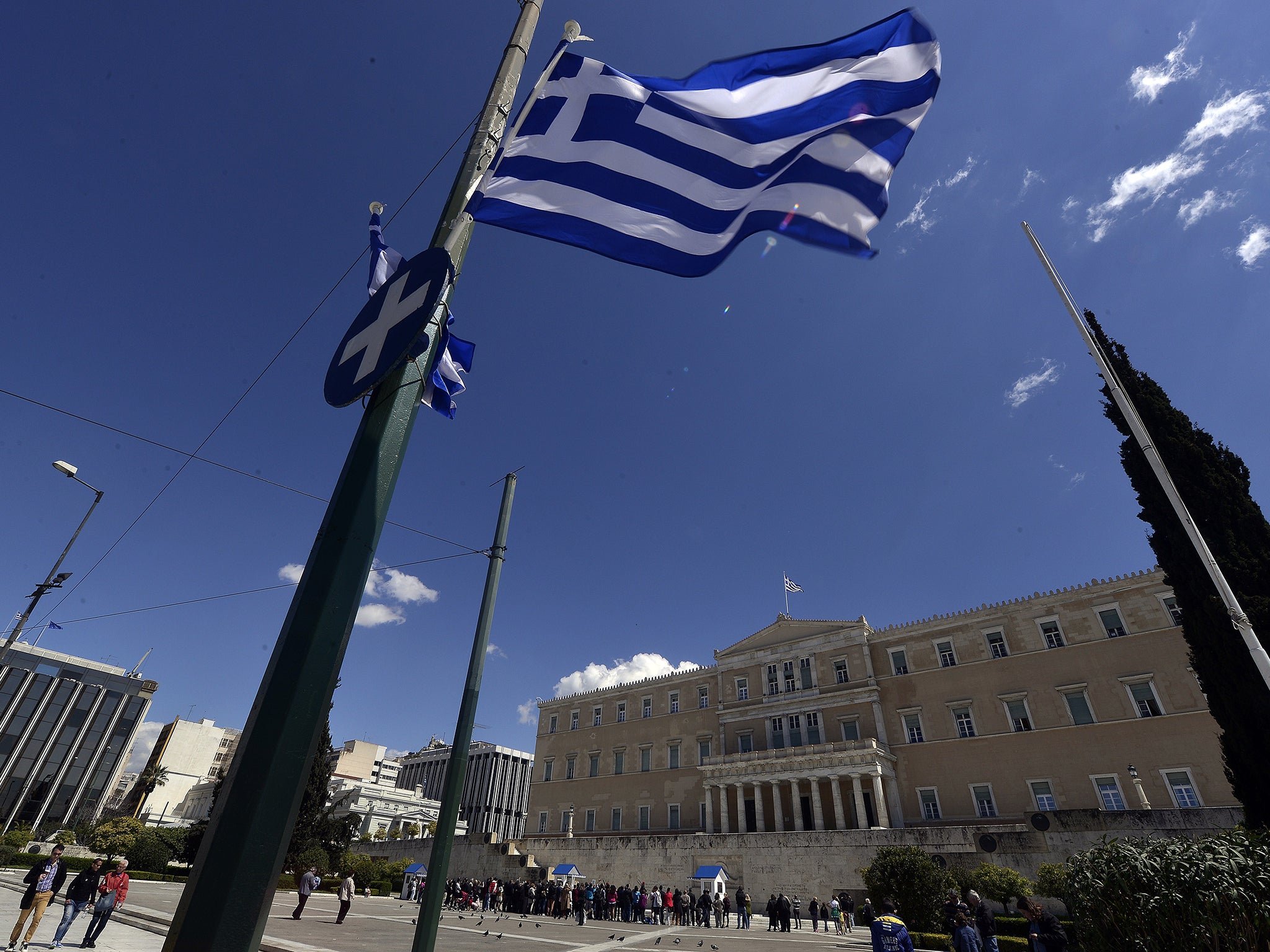Debt relief? Greece can dream but it may be deluding itself
Das Capital: Expectation of support from other ‘peripheral’ eurozone countries was naive

Greece’s new government believes that having taken up the austerity pills prescribed by the EU, it will be in a position to negotiate debt relief. It will be interesting to see if this is the case; Greece may not have any enemies but, to paraphrase Oscar Wilde, it is intensely out of favour among its European friends.
The German Finance Minister Wolfgang Schäuble has made it clear that this country will not cross a self-nominated red line: any debt writedown.
The German press has portrayed the situation as one where Germany has made repeated concessions – which the Hellenic fraudsters have ignored. The tabloid Bild ran an article featuring pictures of Vladimir Putin and the Greek Prime Minister Alexis Tsipras asking: “The Russian or the Greek: who is more dangerous for us?”
The Dutch have acted as envoys for Germany. Italy and France have offered succour in private to Greece but have been unwilling to offer public support. Spain, Portugal and Ireland have been the most strident in their refusal to accede to Greek pleas.
An increasingly politicised European Central Bank has played it part. The ECB’s emergency liquidity assistance (ELA) programme has been critical to the continued operation of the Greek banking system – but the ECB can only to lend to solvent institutions. The ECB last weekend ruled that the country’s top four lenders need more than €14bn in fresh capital to continue, and they have to detail their money raising plans within the next three days.
A former IMF staff member, Peter Doyle, drew attention to the departure from normal practice. Central banks usually conceal the provision of emergency assistance to avoid setting off a banking crisis and destabilising the financial system. In this case, the ECB has been public about its aid to Greece, in terms of amount, terms and conditions. The ECB has also repeatedly warned that its board can withdraw its support at any time.
In effect, the actions are actually destabilising the Greek banking system and financial markets. The ECB appears to be acting as the creditors’ enforcer, using changes in the conditions of lending as well as tight control of funding to maintain pressure on what the EU sees as an intransigent Greece.
Expectation of support from other “peripheral” eurozone countries affected by austerity policies was naive. Greece remains, on average, richer than many of them. As the Italian Prime Minister Matteo Renzi stated at the G7 Summit in June, Italian voters would not accept a situation where Greeks enjoyed more generous pension rights than they did.
A Greek default would inflict big losses on other eurozone countries and taxpayers, which they are not well placed to bear. Countries such as Italy, which have also suffered a decline in output, would face losses of more than €40bn (£29bn).
Domestic political concerns have also militated against support for Greece. Spain, Portugal and Ireland have been unwilling to squander whatever hard-earned and painful gains have been achieved through their own austerity programmes by rallying to the Hellenic cause.
With their own elections to fight, the incumbent Spanish and Portuguese governments were wary of assisting Syriza in any way that would give an advantage to their political opponents, such as Podemos in Spain.
Meanwhile, that few European leaders have been candid about the risk of bailouts means any write-off of Greek debt would be politically dangerous.
Personal political ambition may have also played a part. Controversially elected to his role as European Commission Jean-Claude Juncker sought, uninvited, to try to mediate a Greek solution – trying to reshape the crisis in purely humanitarian terms to justify a more direct role for the commission and reduce the role of the IMF.
Given that the commission does not have the financial resources to assist and would, in essence, need to be financed by member nations, Mr Juncker’s involvement was an unnecessary distraction and led to delays. When the Greek Prime Minister turned on the European Commission president, dismissing his proposal as a cheap negotiating trick, Greece lost crucial support.
Even Greece’s half-hearted attempt to make new friends showed a certain naivety. Its appeal to Russia was confusing, creating alarm about the nation’s allegiances at a time when Greece was looking for solidarity from eurozone partners. It also alienated the US, which did not welcome Russian influence in the region.
And it was also ill-judged too; Russia support is hardly reliable, as Comecon countries in the Soviet era discovered.
None of these factors has changed, meaning that any new Greek government faces familiar challenges in its efforts to obtain relief from its overwhelming level of debts.
Satyajit Das is a former banker whose new book, ‘A Banquet of Consequence’, is released in February 2016
Subscribe to Independent Premium to bookmark this article
Want to bookmark your favourite articles and stories to read or reference later? Start your Independent Premium subscription today.

Join our commenting forum
Join thought-provoking conversations, follow other Independent readers and see their replies